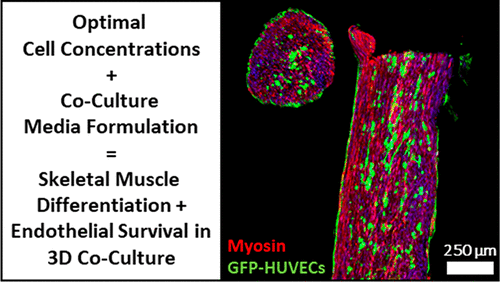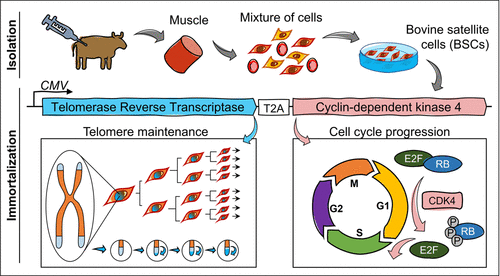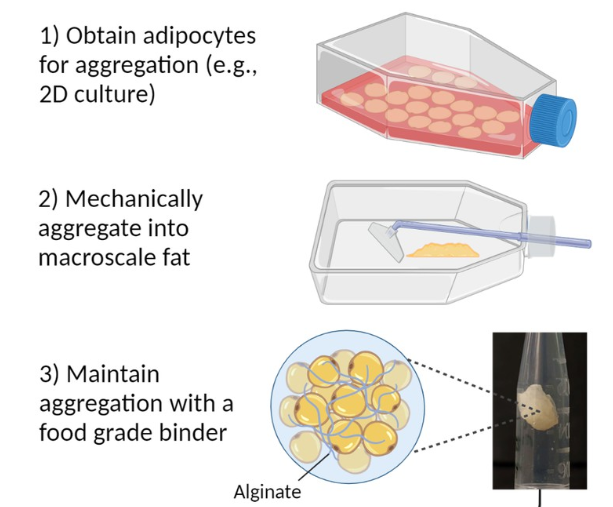- Overview
- Summary
- Funding
- Cite This Publication
Overview
Who: Natalie Rubio, Isha Datar, David Stachura, and Kate Krueger
Published: June 11, 2019
Where: Frontiers in Sustainable Food Systems
Key Takeaway: Cellular agriculture holds promise for future seafood production.
Research Topics:
Summary
Natalie Rubio et al. reviews advancements in cell-based seafood and considers the associated environmental, ethical, and technological problems. The paper shows that fish cells have many advantages over mammalian cells when it comes to growing them in a lab setting, including hypoxia tolerance, higher buffering capacity, and a lower temperature required for optimal growth. Drawing on the limited relevant literature available for cell-based seafoods, Rubio et al. further explore cell line availability, cell isolation, and culture conditions required for fish, crustaceans, and mollusks. Overall, Rubio et al. demonstrate the potential of cell-based techniques for the future of seafood production and the advancement of cellular agriculture, which has tended to focus on mammalian cells.
Written by Nick Johnson
Cite This Publication
Rubio, N., Datar, I., Stachura, D., Kaplan, D., & Krueger, K. (2019). Cell-Based Fish: A Novel Approach to Seafood Production and an Opportunity for Cellular Agriculture. Frontiers in Sustainable Food Systems, 3, 43. https://doi.org/10.3389/fsufs.2019.00043
You Might Also Like...

Optimization of Culture Media and Cell Ratios for 3D In Vitro Skeletal Muscle Tissues with Endothelial Cells
John SK Yuen Jr., Brigid M Barrick, Hailey DiCindio, Jaymie A Pietropinto, and David L Kaplan

Immortalized Bovine Satellite Cells for Cultured Meat Applications
Andrew J. Stout, Miles J. Arnett, Kristin Chai, Tina Guo, Lishu Liao, Addison B. Mirliani, Miriam L. Rittenberg, Michelle Shub, Eugene C. White, John S. K. Yuen Jr., Xiaoli Zhang, and David L. Kaplan

Aggregating in vitro-grown adipocytes to produce macroscale cell-cultured fat tissue with tunable lipid compositions for food applications
John Se Kit Yuen Jr, Michael K Saad, Ning Xiang, Brigid M Barrick, Hailey DiCindio, Chunmei Li, Sabrina W Zhang, Miriam Rittenberg, Emily T Lew, Kevin Lin Zhang, Glenn Leung, Jaymie A Pietropinto, David L Kaplan


